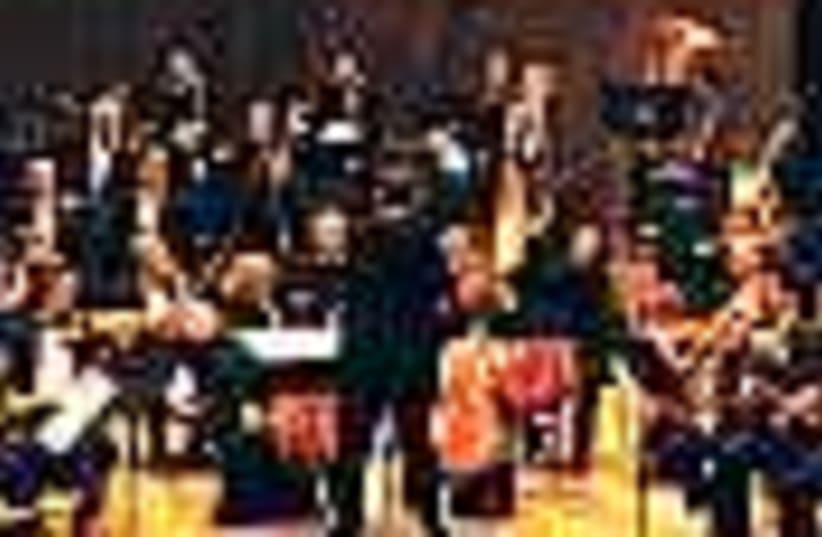The Israel Festival
Schumann Marathon
Jerusalem Theater, May 28
The 200th birthday of Schumann was celebrated at the Israel Festival with a concert titled “Marathon.”Marathon concerts were first introduced to this country some 40 years ago, in the 1970s, by Lukas Foss. Their novelty appeal has since worn off, as the audience proved by voting with its feet and largely staying away from the sparsely populated hall.With its potential of accumulating fatigue, a marathon concert might possibly stand the patience test if all the performances are extraordinary. This, unfortunately, was not the case here. Schumann deserved better. Among seven works, performed over four never-ending hours, only two were noteworthy. All the rest were mediocre at best.The Piano Quartet, performed by Nadia Weintraub, Yelena Tishin, Avraham Levental and Dmitri Golderman, was extremely impressive. It represented music making at its very best – sensitive, mutually attentive, perfectly transparent, and conveying the work’s emotional content delicately and with utmost identification. Weintraub’s inspired pianism offered the best piano-playing of the whole Marathon.Nitai Tsori and Michal Tal’s rendition of the Violin and Piano Sonata No. 1 was also immensely enjoyable. It displayed profound and mature understanding of this late work.There were many swallowed intermediate notes in pianist Daniel Gortler’s performance of the Symphonic Etudes. Gortler adopted an elegant approach rather than highlighting the work’s exciting characteristic nervosity.In pianist Victor Stanislavski’s rendition of Kreisleriana there was much hammering on the helpless piano. The pianist seemed to prefer a display of breathless virtuosity, hovering carelessly over significant notes of the fast sections.Alto Bavat Maro’s intonation in A Woman’s Love and Life was sometimes accurate. Her voice, possibly well-suited for a chamber-music-sized space, was hardly audible in the large concert hall. And Shlomi Shem-Tov’s expertly played piano part could hardly make up for the vocal shortcomings.As an opera singer, Guy Mannheim may perhaps be on his way towards a successful career. His operatic and theatrical mannerisms, however, were far from doing justice to Lied singing, such as Poet’s Love, rendered with a deplorable lack of sensitivity for this poetic song cycle’s delicate and intense lyricism. Gil Shohat’s playing, however, was most impressive in the songs’ piano solo passages.Schumann Marathon
Jerusalem Theater, May 28
The Israel Festival
Purcell: King Arthur
The Jerusalem
Baroque Orchestra
Jerusalem Theater, May 29
Henry Purcell’s 350th birthday was celebrated (somewhat belatedly) at the Israel Festival by the Jerusalem Baroque Orchestra’s concert performance of his semi-opera King Arthur.Purcell’s music is today as straightforwardly communicative as it presumably was 300 years ago. His miraculous genius of adapting the typical accents of the English language to his music – vocal as well as instrumental – is just one significant indicator of his uniqueness.It is a pleasure to be able to report that this was an excellentperformance on the part of local and guest artists alike. ConductorAndrew Parrott – without a baton, which added much to the subtlety ofnuances – created a perfectly balanced orchestral and choral rendition,brisk, with incisive articulation and energetic tempi that captivatedthe audience from beginning to end. The vocal and instrumental style,instruments and pronunciation approached the authentic performancepractices of 17th-century England.Local soprano Ye’ela Avital’s radiant, lovely intonation soundedeffortlessly, flexible and impeccably pure. Anat Edri’s bright, clearsoprano blended in expertly with the voices of her partners in theduets.England’s appealing tenor Simon Wall poignantly emphasized the text’ssignificance, including discreet, mischievous humor wheneverappropriate.Baritone Thomas Guthrie, also from England, sounded enjoyable andauthoritative, though not always quite as dark as his part required.The eternally New (since 1993) Israeli Vocal Ensemble waswell-rehearsed and displayed pleasant voices, impressively blending inwith each other.
Purcell: King Arthur
The Jerusalem
Baroque Orchestra
Jerusalem Theater, May 29
